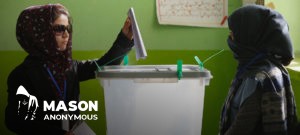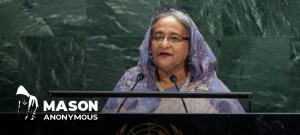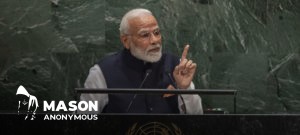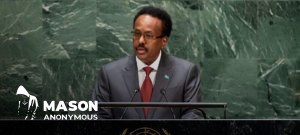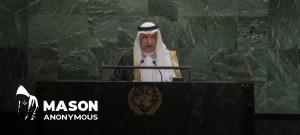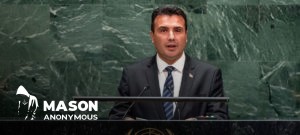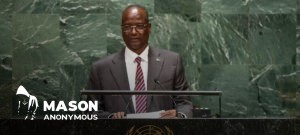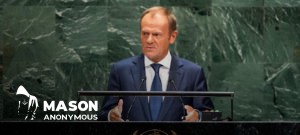On Friday, they will be centre stage during the General Assembly’s big opening week, when countries will discuss progress made since the landmark SAMOA Pathway agreement was reached, five years ago.
The 38 countries designated by the United Nations as Small Island Developing States, or SIDS, are amongst the most vulnerable countries in the world. Situated in the Caribbean, Pacific and Atlantic Oceans as well as the Indian Ocean and South China Sea, they are bearing the brunt of an increasingly extreme and unpredictable global climate. As well as the environmental challenges, SIDS face a unique set of issues relating to their small size, remoteness, and exposure to external economic shocks.
Most island nations tend to confront similar constraints in their efforts to develop sustainably, such as a narrow resource base, small domestic markets and heavy dependence on a few external and sometimes remote markets. They also generally face high costs for food, which often has to be imported, as well as energy, infrastructure, transportation and communication. Those challenges are further complicated by the difficulties they face mobilizing development finance on affordable and appropriate terms.
Ms. ‘Utoikamanu has been speaking to UN News about the challenges faced by SIDS.
How are SIDS being impacted now?
Secretary-General António Guterres tours Abaco Island, Bahamas to witness at first-hand the devastation caused by Hurricane Dorian. UN Photo/OCHA/Mark Garten
Island communities are on the frontlines of the climate emergency and often have little resilience to disasters. Earlier this month, the Bahamas, one of the wealthier SIDS, was devastated when Hurricane Dorian swept across parts of the Caribbean archipelago. On a visit there, the UN Secretary-General António Guterres said it was “impossible not to be horrified with the destruction” he saw, dubbing the Category 5 hurricane, “Category Hell.” He added that the extreme weather had been “powered by climate change.”
The Bahamas is not alone. Pacific island states have been particularly susceptible to climate-related changes. The melting of glaciers in the Arctic and Antarctic caused by higher global temperatures has led to rising sea levels which has significantly impacted low-lying island nations. In May, the Secretary-General visited Tuvalu and said that sea level rise in some Pacific countries is “four times greater than the global average”, adding that it poses “an existential threat to several island States”.
Those climate shocks and the unique make-up of the SIDS means that many are finding it difficult to develop in a sustainable fashion and improve the lives of their citizens.
How does this concern the rest of the world…isn’t this a problem that SIDS need to work out?
Tuvalu, an archipelago of nine atolls in the South Pacific Ocean, where the average height of the islands is less than 2 metres above sea level, is highly susceptible to the effects of global warming. UNDP Tuvalu/Aurélia Rusek
The SIDS are the countries most affected by climate change but, given that they are generally producing little of the harmful greenhouse gases that are fueling climate change, they are also the countries least responsible for the problem. So, all nations, especially industrialized ones which have generated most of these harmful gases, have a moral responsibility to act.
And while island nations are clearly on the frontline of the climate crisis, as global warming worsens, the effect is being felt around the world in developing and developed countries. So, it’s a global issue which concerns people everywhere.
So what solutions are being found?
The greatest challenge faced by Small Island Developing States is the fall-out from climate change, and they need to not only adapt to this new threat but also find ways to develop sustainably. In short, they need to build both economic and environmental resilience.
SIDS are not sitting idly by; many for instance are emerging as frontrunners in the pursuit of renewables-based energy systems building on abundant local and natural resources. While they recognize that they contribute little to greenhouse gas emissions, they recognize that they themselves can help set examples for the rest of the world.
Here are some of the ways that organizations and individuals are, often with support from the international community, finding ways to respond effectively to the crisis.
In the Comoros, in the Indian Ocean, farmers are adapting to dramatic shifts in the climate, namely a rise in temperatures and a reduction in rain fall.
Local conservationist Alfred Masul is replanting mangrove trees in Papua New Guinea to build resilience against climate change. UNDP/Andrea Egan
In Papua New Guinea, local conservationist Alfred Masul is working to build resilience to extreme weather and rising sea levels. He is protecting the fragile coast of his island home by planting mangrove trees, which will also encourage fish to return to local waters and provide a valuable source of food.
In Jamaica, in the Caribbean, which has been suffering from drought in recent years following a 30 per cent drop in rainfall, communities are learning to harvest rain water, an exercise which can build resilience and aid development by helping to shore up food security and create jobs.
So, what will the SIDS hope to achieve in New York this month?
Climate-related disasters are growing in frequency and severity, so the risks facing people living on islands and to development overall will only intensify. The global community will join the small island developing states at a high-level summit at the UN in New York to assess how SIDS are boosting sustainable development whilst confronting the new climate reality. They will focus on one key instrument, the SAMOA Pathway, a blueprint for sustainable development for island nations which was agreed five years ago in the capital of the eponymous Pacific Ocean country.
It is hoped that new steps will be taken on climate action, that the oceans and seas which surround the islands can be better conserved and that public health systems can be strengthened. The SIDS will also look at scaling up new opportunities for economic growth as well as the Pathway suggests “forging genuine and durable partnerships for sustainable development.”
